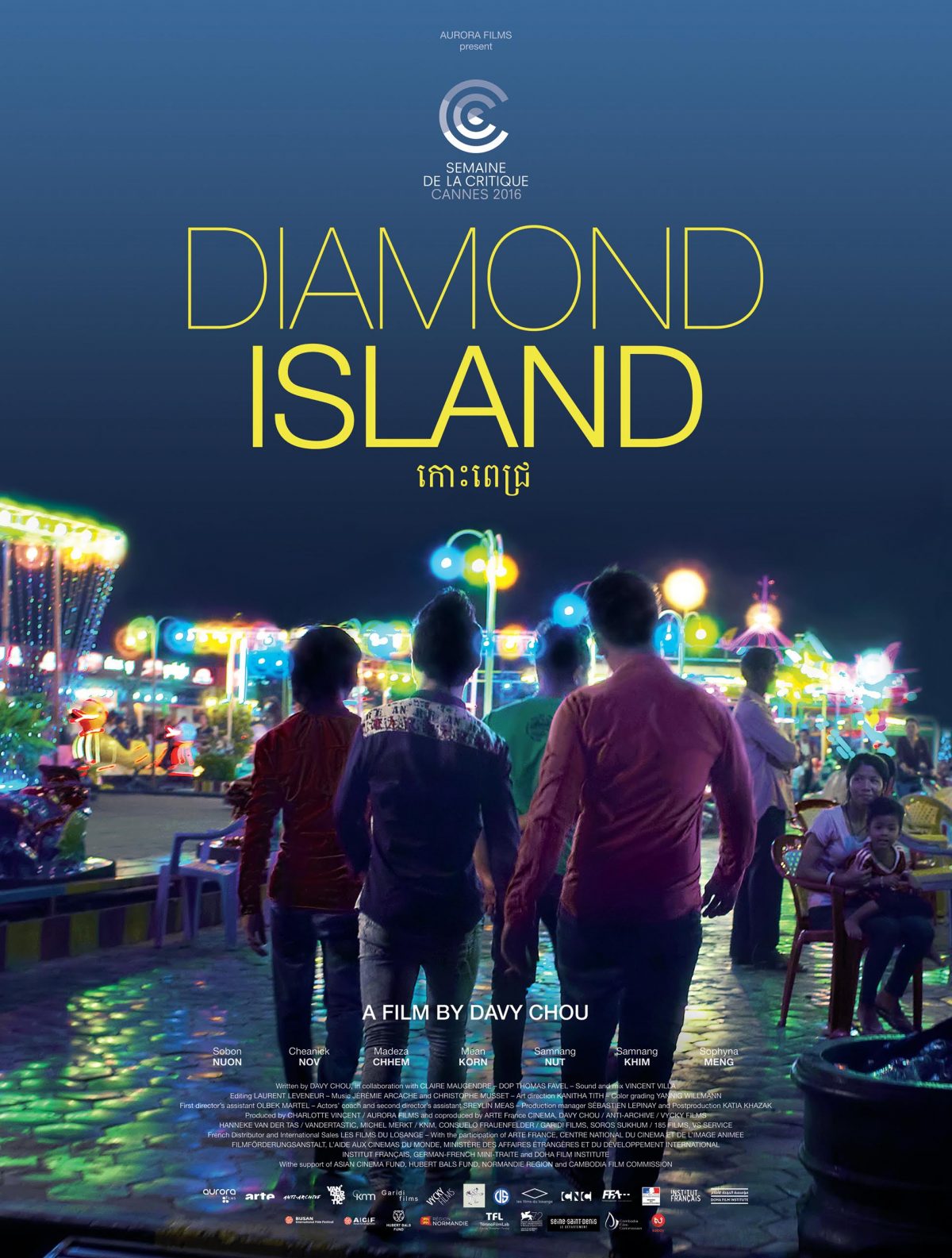Diamond Island

Davy Chou
France – 2016

Screenplay: Davy Chou, Claire Maugendre
Cinematography: Thomas Favel
Production: Aurora Films
Language: Khmer
Duration: 101 min
Color: Color
Synopsis: Bora leaves the poverty of his village to seek better luck in Phnom Penh. He takes up a back-breaking job as a construction laborer on the luxury apartment building project named “Diamond Island,” intended for a new class of wealthy urbanites. Living in a shantytown near the titular complex, along with hundreds of other low-paid workers, he finds some good friends such as the chatty and somewhat punkish Dy, while catching the eye of lovely Aza, who seems to like him both for his modesty and good looks. But city life becomes complicated when Bora runs into his estranged older brother Solei, who left the homestead years ago and hasn’t really been heard from since. The latter seems to be living it up in Phnom Penh, driving around town on a fancy moped and hanging out with his own crew and girlfriend, all of it thanks to the help of a mysterious “American sponsor”—clearly Solei’s pimp—a fact Bora remains ignorant of or else doesn’t want to acknowledge. Through Bora’s experiences, we see a contemporary Cambodia as a society in transition, where the divide between the urban rich and the rural poor is growing quickly, and perhaps irreversibly.
Notes:
Reminiscent of both Satyajit Ray’s Aparajito in its fish-out-of-water account of a kid trying to make it in the city and of Tsai Ming-liang’s Rebels of the Neon Gods in its portrayal of disaffected Asian youth, the scenario by French-Cambodian Davy Chou—in collaboration with Claire Maugendre—is a narrative feature début, a compassionate film as much about its very specific Cambodian setting as a timeless coming-of-ager highlighting teenage courtship rituals.
It is an encouragingly ambitious first film on a technical level, where original ideas abound. The sound mix in particular offers some playful concepts, with the noise and music in nightclub scenes mixed low and the dialogue delivered in a whisper, a counterintuitive effect given the typical club-scene reality of having to shout at people only a few inches away. Color grading from Yannig Willman likewise makes a conscious effort to push the visuals into defiantly unrealistic territory, with a fairground in particular benefiting from wildly saturated fluorescence, blinking in the dark. More contemplative than kinetic, Chou often observes his hero’s trajectory from a distance—often quite gorgeously, such as when the camera pulls back to reveal Bora, Solei and their buddies riding through the streets as the sun sets and their headlights shine through the darkness. DP Thomas Favel (Gaz de France) builds a rich palette of blues and yellows, contrasting the dusty world of condo construction with the candy-colored nightclubs and amusement parks that Bora frequents as he emerges into adulthood. Whilst the aesthetic signature is impressive, some critics question whether the social critique of the film might have been better served in a documentary style. In a work where some of the most memorable scenes show what life is like for those sacrificing themselves so others can live in the lap of luxury, this kind of naturalistic fiction loses critical momentum at the expense of a rather classic bildungsroman, comments film critic Jordan Mintzer. Perhaps he forgets that re-iteration and re-interpretation of classic narrative structures isn’t a Hollywood prerogative, and Chou certainly proves that he can hold his own with his internationally acclaimed début fiction feature. The film marks a new flowering of Cambodian cinema. The grandson of one of that country’s most prolific producers prior to the Khmer Rouge purges during which Cambodia’s intellectual élite was nearly extinguished, French-born Chou brightly represents a new generation. It’s heartening that Cambodia is where he has chosen to develop his voice, with Diamond Island as a follow up to his well-regarded feature documentary Golden Slumbers, which examined the legacy of lost Cambodian cinema destroyed by the Khmer Rouge regime.
– Notes based on Mintzer, Jordan. 2016. “‘Diamond Island’: Cannes Review.” The Hollywood Reporter. and Bray, Catherine. 2016. “Cannes Film Review: ‘Diamond Island.’” Variety. May 13.


